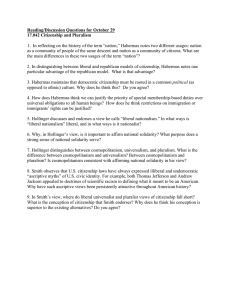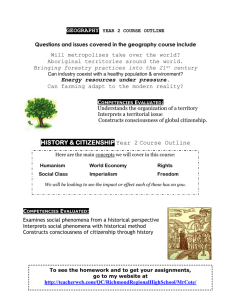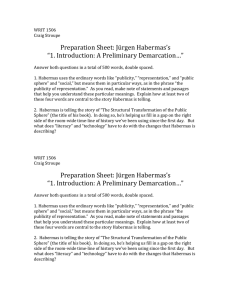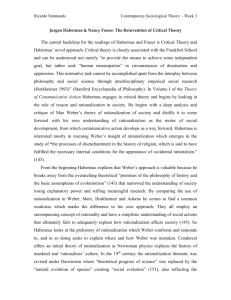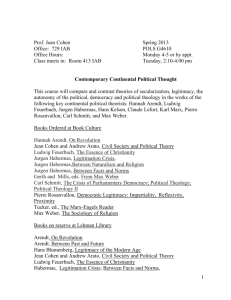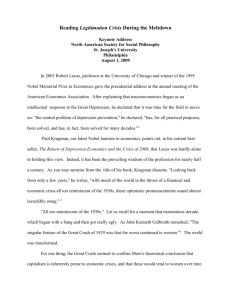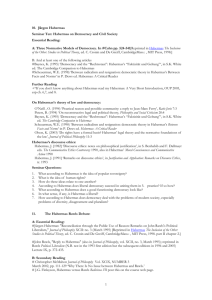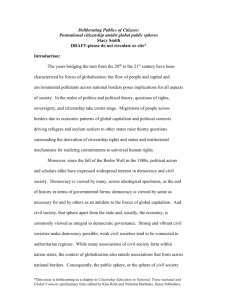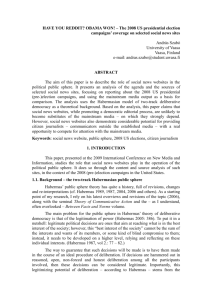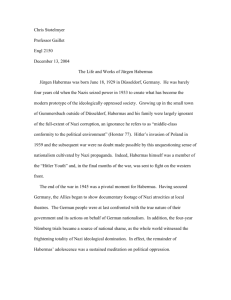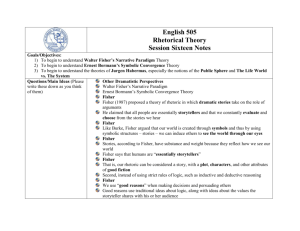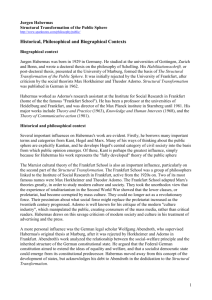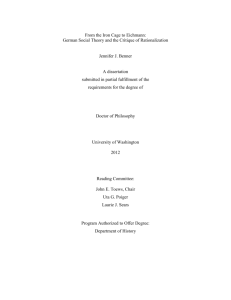Habermas says that the colonization of the lifeworld (family and
advertisement
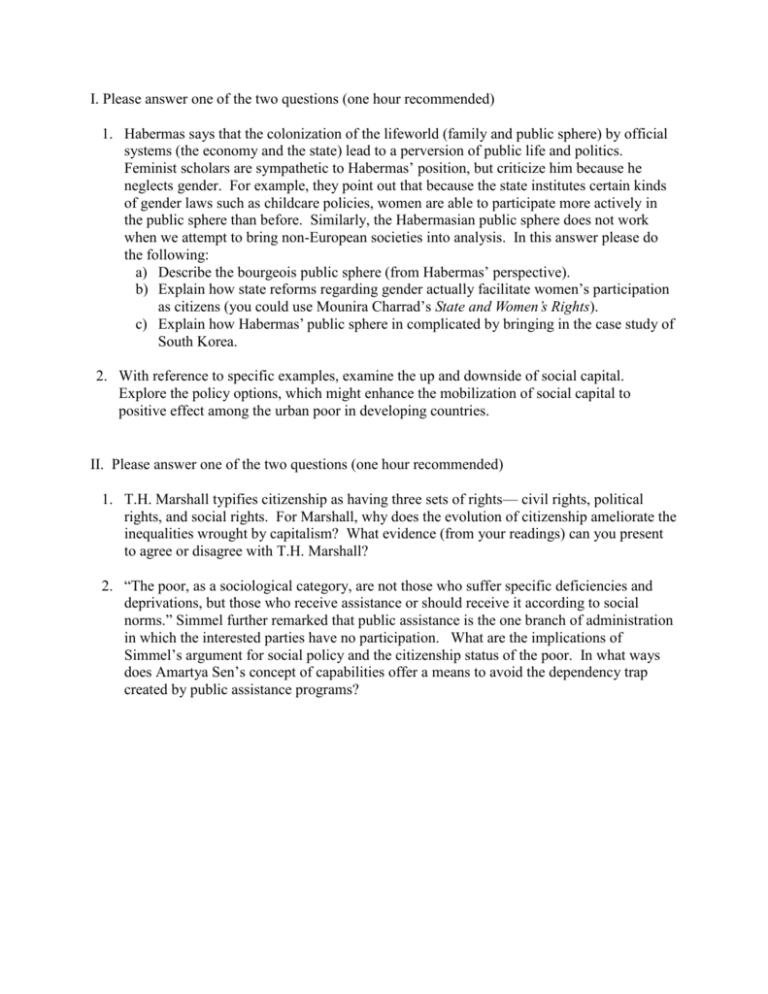
I. Please answer one of the two questions (one hour recommended) 1. Habermas says that the colonization of the lifeworld (family and public sphere) by official systems (the economy and the state) lead to a perversion of public life and politics. Feminist scholars are sympathetic to Habermas’ position, but criticize him because he neglects gender. For example, they point out that because the state institutes certain kinds of gender laws such as childcare policies, women are able to participate more actively in the public sphere than before. Similarly, the Habermasian public sphere does not work when we attempt to bring non-European societies into analysis. In this answer please do the following: a) Describe the bourgeois public sphere (from Habermas’ perspective). b) Explain how state reforms regarding gender actually facilitate women’s participation as citizens (you could use Mounira Charrad’s State and Women’s Rights). c) Explain how Habermas’ public sphere in complicated by bringing in the case study of South Korea. 2. With reference to specific examples, examine the up and downside of social capital. Explore the policy options, which might enhance the mobilization of social capital to positive effect among the urban poor in developing countries. II. Please answer one of the two questions (one hour recommended) 1. T.H. Marshall typifies citizenship as having three sets of rights— civil rights, political rights, and social rights. For Marshall, why does the evolution of citizenship ameliorate the inequalities wrought by capitalism? What evidence (from your readings) can you present to agree or disagree with T.H. Marshall? 2. “The poor, as a sociological category, are not those who suffer specific deficiencies and deprivations, but those who receive assistance or should receive it according to social norms.” Simmel further remarked that public assistance is the one branch of administration in which the interested parties have no participation. What are the implications of Simmel’s argument for social policy and the citizenship status of the poor. In what ways does Amartya Sen’s concept of capabilities offer a means to avoid the dependency trap created by public assistance programs? III. Please answer one of the two questions (one hour recommended) 1. While most persons working on citizenship see it as mainly dealing with rights and responsibilities, newer academic works take a more sinister perspective because they build on the Weberian idea of the state. That is, the state “is a human community that (successfully) claims the monopoly of the legitimate use of physical force within a given territory” (Weber, 1918). Please elaborate on how bringing in the state (as Weber defines it) adds a different perspective to the ideals of citizenship. Among others, you may use Scott, Aretxaga, and Mbembe in this answer. You may also use empirical examples from your own dissertation project. 2. What are the relative merits of participatory and representative democracy? Using concrete examples, examine these merits in the context of developing countries, particularly those emerging from authoritarian regimes. IV. Please answer one of the two questions (one hour recommended) 1. What do you see as the contribution of classical sociological theory (particularly Marx, Weber, and Durkheim) to developing a contemporary theory of citizenship. Discuss with reference to the twentieth century literature on citizenship. 2. Weber says that for domination to work, legitimation is necessary. He says, “…every genuine form of domination implies a minimum of voluntary compliance, that is, an interest (based on ulterior motives or genuine acceptance) in obedience” (From Economy and Society, Vol I. Edited by Roth and Wittich, 1978). Please answer the following: a) What are the kinds of legitimation crises that nation-states face? b) How do they attempt to resolve these crises? c) In your case study of South Korea, what are the legitimation crises that the state has undergone? How does the South Korean state attempt to resolve its crises in legitimacy?

